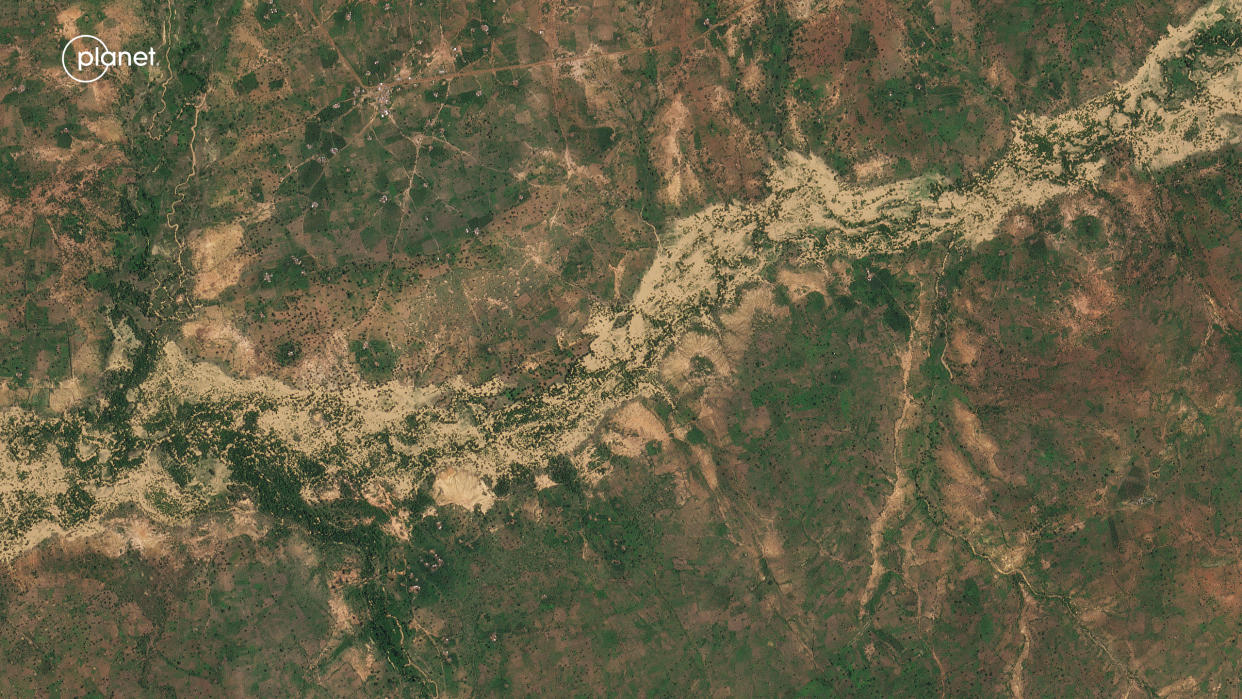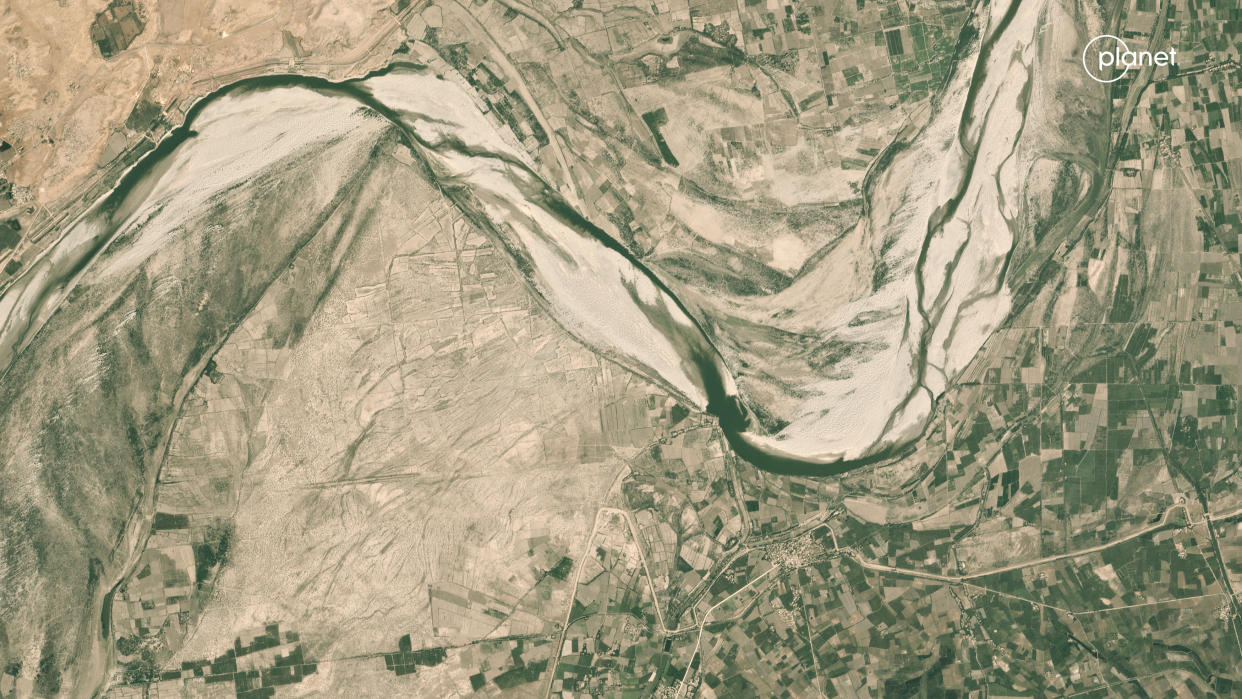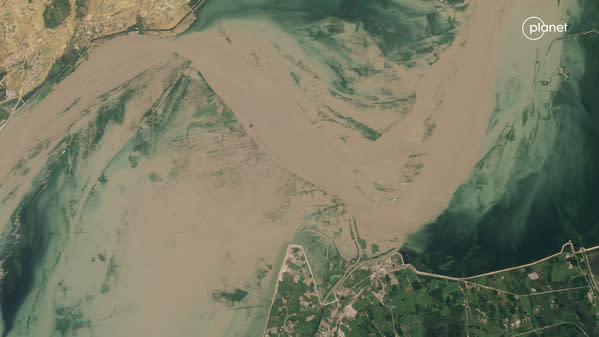UK ‘must invest more in climate adaptation amid whiplash of flood and droughts’
The Government must invest more in climate adaptation amid a “whiplash” of floods and droughts across the world, campaigners said.
Charity WaterAid is calling on the British public to sign a petition urging Rishi Sunak to show leadership on the issues at Cop28, with plans to hand the signatures to ministers next week.
It comes after an analysis of climate data released by the charity, as well as Cardiff and Bristol Universities, found that millions living in poverty around the world have been experiencing a “climate hazard flip” or “whiplash” since the millennium.
The research, accompanied by satellite imagery, found areas that used to experience frequent droughts are now more prone to frequent flooding, while other regions historically prone to flooding now endure more frequent droughts.
WaterAid said this is having a devastating effect on communities in these regions, including wiping out crops and livelihoods, damaging water supply infrastructure, disrupting water supply services and exposing people to disease and death.

The researchers examined the frequency and magnitude of flooding and drought hazards over the last 41 years in locations across six countries – Pakistan, Ethiopia, Uganda, Burkina Faso, Ghana, Mozambique and Italy.
They found that areas in Pakistan, Burkina Faso and northern Ghana, which are normally associated with hotter drier conditions, have flipped to become increasingly wetter and flood-prone.
By contrast, the southern Shabelle region of Ethiopia, which between 1980-2000 experienced numerous periods of flooding, now shows a shift towards prolonged and severe drought, they said.
The drier Shabelle River – a major water source for Somalia – also recently experienced the worst of the drought conditions in the Horn of Africa, but ended with a major flood in April this year.
WaterAid found that the communities exposed to these extreme conditions are often ill-equipped to deal with them as they face water and food scarcity.
The charity warned that failure to act on climate adaptation at Cop28 could lead to entrenched poverty, displacement, disease and potentially even conflict in the worst affected areas.

Tim Wainwright, WaterAid’s chief executive, said: “The climate crisis is a water crisis and, as our research today shows, our climate has become increasingly unpredictable with devastating consequences.
“From drought-stricken farmlands to flood-ravaged settlements, communities in Pakistan, Burkina Faso, Ghana and Ethiopia are all experiencing alarming climate whiplash effects; Uganda is experiencing ever more catastrophic flooding and Mozambique a chaotic mix of both extremes.
“While we will all pay a price for global water stress, it’s those living on the front line of the climate crisis who are paying for it now – their lives hanging in the balance.
“Our leaders must recognise the urgency and prioritise investment into robust and resilient water systems now.”
Co-lead researcher Professor Michael Singer, of the School of Earth and Environmental Sciences at Cardiff University, warned these climatic phenomena are not just confined to these countries.
He said: “Although the scope of this study was limited to a handful of countries and specific locations within them, we believe the hazard flip and, more generally, changes to flood and drought hazard frequency and magnitude are something most places on the planet will have to address.”

Co-lead researcher Prof Katerina Michaelides, professor of dryland hydrology at the University of Bristol Cabot Institute for the Environment, said: “We have come to understand that climate change will not lead to a monolithic change to climatic hazards, despite globally increasing temperatures.
“Instead, the hazard profile for any region is likely to change in unpredictable ways.
“These factors must be considered to support climate adaptation for the lives and livelihoods of humans across the globe.”
WaterAid said more investment is needed in adaptation solutions like drought resistance measures and flood protection.
The charity is calling on Mr Sunak to show leadership at Cop28 and for the UK Government to invest one third of its international climate finance budget towards locally-led adaptation projects.
Meanwhile, it is urging the public to join the more than 20,000 people who have signed a petition to demand the UK Government increase investment in climate adaptation.
More widely, WaterAid said world leaders in high income countries, including the UK, should more than double their public finance for adaptation from 2019 levels by 2025 and match climate funding amounts to mitigation funding.
A Foreign Office spokesperson said: “The UK is pleased that the UAE are highlighting the critical importance of water at Cop28, with the 10th December programme dedicated to food, agriculture and water.
“The UK is actively engaged in supporting this programme, including through the championing of the first high level ministerial dialogue at Cop on building water resilient food systems.”
The PA news agency has contacted the Department for Energy Security and Net Zero for comment.
